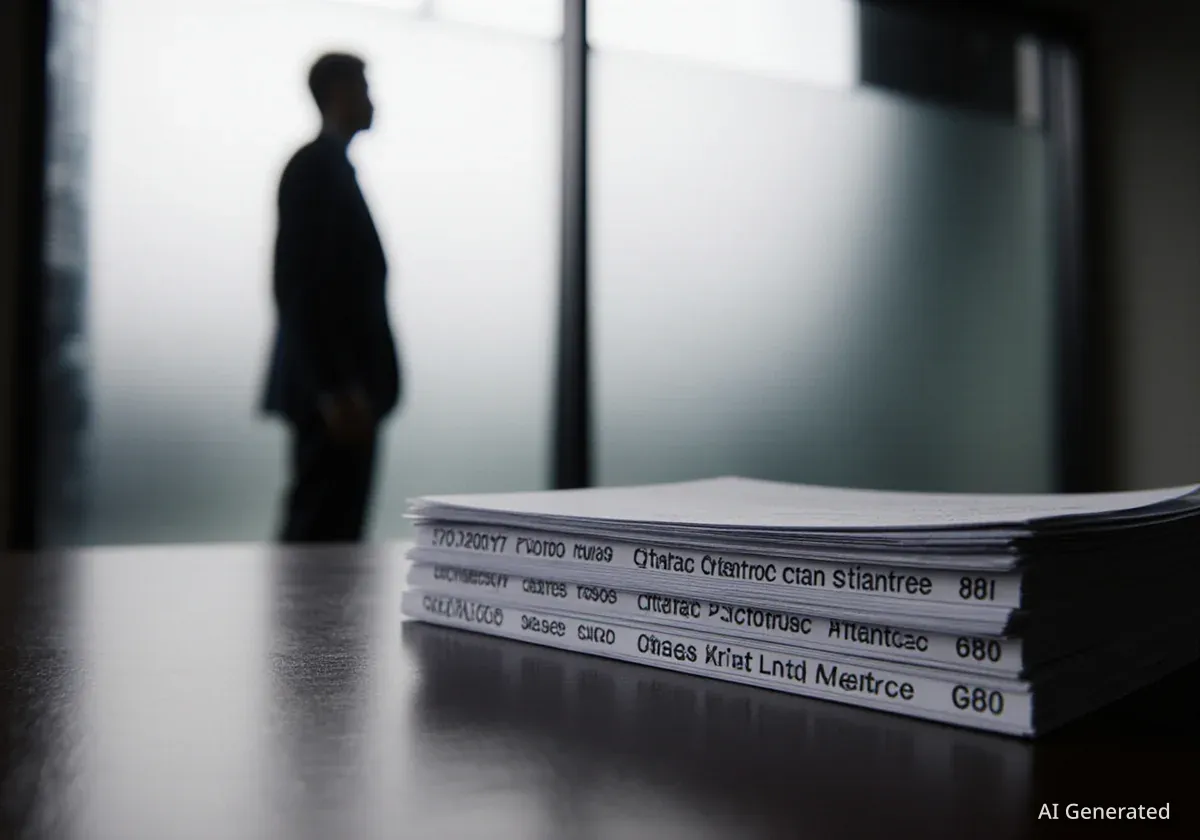A licensed Philadelphia real estate agent, Jonathan Barach, has pleaded guilty to federal charges in connection with a loan fraud scheme that raised over $3 million from lenders. The funds, which were supposed to finance property developments, were instead used for personal expenses, leaving investors with losses exceeding $1.4 million.
Barach, who co-founded The Barach Group LLC and TBG Real Estate LLC, admitted to one count of wire fraud and one count of making an illegal monetary transaction. He now faces a potential maximum sentence of 30 years in prison, with sentencing scheduled for early 2026.
Key Takeaways
- Jonathan Barach, a Philadelphia real estate agent, pleaded guilty to wire fraud and an illegal monetary transaction.
- He fraudulently raised over $3 million from lenders between July 2017 and April 2021.
- Barach falsely claimed the funds were for bridge loans to real estate developers.
- Over $1.4 million of the loan proceeds remain unpaid to investors.
- The case was investigated by the FBI, IRS, and FDIC, and Barach faces up to 30 years in prison.
Details of the Fraudulent Scheme
The fraudulent activities occurred over a period of nearly four years, from July 2017 to April 2021. During this time, Jonathan Barach solicited funds from multiple lenders by presenting a false business proposition. He claimed the capital was needed to provide short-term bridge loans to builders and contractors.
According to court documents, these loans were purportedly for the purchase and renovation of distressed real estate properties, a common practice known as "flipping." Barach leveraged his position as a licensed real estate professional and principal of two Philadelphia-based companies, The Barach Group LLC and TBG Real Estate LLC, to lend credibility to his claims.
However, federal investigators found that these investment opportunities were entirely fabricated. Barach had no pending real estate projects that required funding and never intended to use the lenders' money for its stated purpose. The entire operation was based on material misrepresentations designed to deceive investors into providing him with capital.
Understanding Bridge Loans in Real Estate
Bridge loans are short-term financing tools used to "bridge" a gap between more long-term funding solutions. In real estate development, they are often used by builders to acquire a property quickly or to fund renovations before securing a traditional mortgage or selling the completed project. Barach's scheme exploited the legitimacy of this common financial instrument.
Misuse of Investor Funds and Unpaid Debts
Instead of financing property flips, Barach diverted the more than $3 million he raised to cover personal expenses. The investigation revealed that the funds were used to sustain his lifestyle and were not invested in any legitimate real estate ventures as promised to his lenders.
To maintain the appearance of a successful operation and to continue attracting new capital, Barach used a method similar to a Ponzi scheme. He used a portion of the money obtained from newer lenders to make payments to earlier investors. This created a false sense of security and profitability, encouraging existing lenders to keep their money in the scheme and attracting new victims.
Financial Impact of the Scheme
- Total Funds Raised: Over $3,000,000
- Scheme Duration: July 2017 – April 2021
- Outstanding Debt: Over $1,400,000
Despite these periodic payments, the scheme was not sustainable. By the time it collapsed in April 2021, a significant portion of the money had been spent. According to the U.S. Attorney's Office, more than $1.4 million of the fraudulently obtained loan proceeds remains unpaid, representing a substantial financial loss for the victims involved.
Legal Proceedings and Potential Sentencing
Faced with the evidence gathered by federal authorities, Jonathan Barach entered a guilty plea to two serious federal charges: one count of wire fraud and one count of making an illegal monetary transaction. The wire fraud charge relates to the use of electronic communications to execute the fraudulent scheme, a common charge in financial crimes that cross state lines or use electronic banking.
The guilty plea signifies his admission to the criminal conduct outlined by the prosecution. As a result, the case will proceed directly to sentencing without a trial. The court has scheduled his sentencing for February 2, 2026.
Under federal sentencing guidelines, the charges carry a significant penalty. Barach faces a maximum possible sentence of 30 years' imprisonment, along with potential fines and an order to pay restitution to the victims of his scheme.
The final sentence will be determined by a federal district court judge, who will consider various factors, including the total amount of financial loss, the nature of the crime, and Barach's personal history.
A Coordinated Multi-Agency Investigation
The successful prosecution of this case was the result of a coordinated effort by several federal law enforcement and regulatory agencies. The investigation was led by the FDIC Office of Inspector General (FDIC-OIG), IRS Criminal Investigation (IRS-CI), and the Federal Bureau of Investigation (FBI).
Each agency brought its specific expertise to the case:
- The FDIC-OIG focuses on fraud affecting financial institutions.
- IRS-CI specializes in tracking the flow of money and uncovering financial crimes like money laundering and tax evasion.
- The FBI investigates a broad range of federal crimes, including wire fraud and other white-collar offenses.
The United States Secret Service also provided assistance during the investigation. This multi-agency approach is common in complex financial fraud cases, as it allows for a comprehensive review of banking records, tax documents, and electronic communications to build a strong case against the perpetrators. The case is being prosecuted by the U.S. Attorney's Office for the Eastern District of Pennsylvania.





